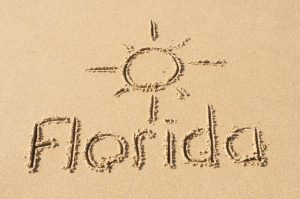
It’s called „fund balance accounting“ and allows the HOA to manage and allocate funds for specific uses while keeping clear records of where the money is going. Additionally, this state allows HOAs to borrow against the reserve fund if it helps shore up the community’s income as long as they pay the money within a year. HOAs must always follow the state regulations for reserve funds whenever they create, modify, or spend one. However, the development’s board cannot call for a special assessment at any time.
In Depth Look At Homeowners Association Accounting
As mentioned above, reserve transactions should be reported as separately as possible given the limitation of the accounting software. At the very least, the portion of the total assessments relating to reserves should be deposited in the reserve bank account on a timely basis. Accounting treatment to accomplish this varies, but the key is to make sure reserve cash is kept separate from operating cash.

Units of production method

This will provide insight into their current practices when it comes to unanticipated expenses and large-scale capital projects. You’ll also discover the criteria that govern their HOA reserve funds. Do not hesitate to ask the board or HOA manager about how they are using their reserves. It’s always best to choose a community that knows how to manage their finances properly.
Three Types of Reserve Funding
Accurately accounting for activity and presenting the results of operations using fund accounting provides boards with the information they need to comply with Civil Code. Reserve funds are used for large-scale maintenance and repairs of assets in the association. Most of these projects come with a high price tag; however, since they are expected, the HOA can start saving money ahead of time.
- If you have a reserve fund, you can use this money for the repairs.
- In this article, we’ll explore all the ins and outs of HOA reserve funds and reserve fund accounting practices for community association managers.
- The HOA should not use reserves to pay for operating expenses or unnecessary repairs.
- Often, board members try to cover unexpected expenses by imposing a special assessment fee on the association’s members.
- The cash flow method for funding HOA reserves involves making regular contributions to a designated financial account for HOA reserve funds.
Why Do You Need Reserve Funds?
A reserve fund is essential for HOAs, as it allows communities to have enough money to cover emergency expenses or unforeseen repairs and renovations. If they plan ahead, HOAs can create a financial strategy to hoa reserve accounting journal entry fund their reserves based on the study’s findings. Since the HOA must also collect operation funds, the monthly fee that residents must pay should include enough money for regular maintenance and services.
HOA Budget Impacts: What They Don’t Warn You About
- If you need to pay for the same expense every month, it’s recurring.
- The method you choose is determined by your reserve funding objective for covering replacement costs, large-scale costs, and other unexpected costs for extending the useful life of common area assets.
- Once the estimates are ready, members can divvy it up among homeowners or residents.
- Your gross maintenance fee income normally includes a contribution to Reserves, but this portion of the income is not available to pay your operating expenses like Electricity, Insurance, etc.
- I like to use a separate equity account called ‘Capital Expenditures’ and assign the payment to that.
- The correct coding of expenditures in the accounting system is the critical event that allows for proper presentation of each fund.
They also include factors such as inflation to determine the cost of replacement at the end of an asset’s lifespan. Finally, the last step is to determine how much money the association needs to set aside each year. The overall appearance of a community translates directly into its property value.
What Is a Special Assessment?
- Your reserve’s starting balance can spell the difference between smooth sailing and choppy waters.
- Every time a resident pays the monthly HOA fee, a portion goes to the operating fund while another portion, probably smaller, is set aside and kept as part of the reserve fund.
- Therefore, you must take it out of your Income/Expense section of your General Ledger so it does not affect the operating income or Expenses for the current year.
- If an HOA is creating a reserve fund for the first time, or if they’re reassessing an existing one, they conduct a reserve fund study to determine how much money they should put away.
- The Condominium Act also specifies that the reserves must include roof replacement, building painting, and pavement resurfacing, regardless of the amount of the maintenance or replacement cost.
- If you are a board member, you should always prioritize the community’s needs.
- If your community association needs guidance when it comes to reserve funding, trust the financial experts at Clark Simson Miller.
When reserve funds are spent upon approval from the board, that money should be moved from the account back to the checking account in order to pay the bill. It’s important to not charge the check against the reserve savings account from which the money has been moved. HOA reserve funds must be held in a separate account from operating funds and other amounts the association collects.
Can Reserve Fund Money Be Invested?

The finance department will then get the bank statements and go over the deposits and checks. The finance department’s main goal is to maintain an accurate, consistent record of the association’s financial transactions. This includes the same services as a compilation and also has the CPA take an analytical look at the association’s financial records. This is a limited assurance report that guarantees there won’t be any material modification needed.
- Compared with the straight-line method, it doubles the amount of depreciation expense you can take in the first year.
- If an association is not allocating at least 10% of its budget, it loses its FHA certification.
- This article provides certain tips to aid in the correct coding of transactions and the correct presentation of financial information.
- Reserves are monies set aside for the future replacement or renovation of the major community components such as driveways, parking lots, street lighting, playground, pool, roofs, painting, etc.
- Some HOAs maintain a partially funded reserve to lower monthly fees for residents.
- If an HOA doesn’t have operating funds, the community wouldn’t be able to operate as it should on a daily basis.
Sum-of-the-years depreciation
Others budget for the renovation or repair of property items rather than complete replacement to keep costs down. A healthy reserve fund that’s handled properly is an essential component of a well-run HOA or community association. It gives residents peace of mind that larger maintenance projects and emergency repairs are covered, and it prevents an HOA from falling into the red. Often, board members try to cover unexpected expenses by imposing a special assessment fee on the association’s members.
